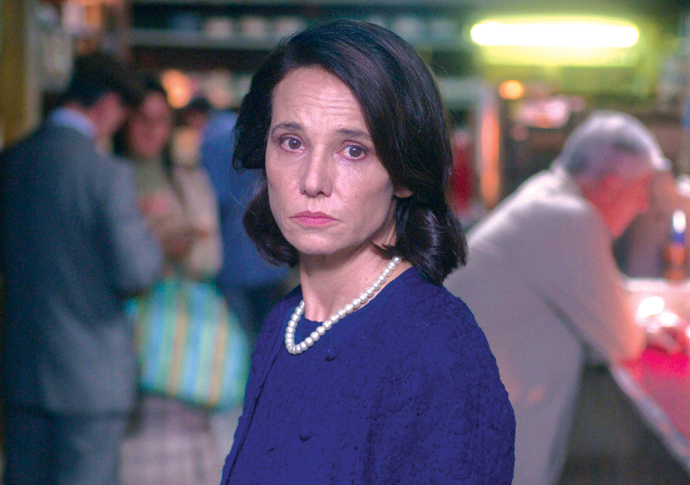1976: brilliant political noir in Pinochet’s Chile
Classy thriller shows how Chileans came to recognise the murderous nature of a dictatorship
Thursday, 23rd March 2023 — By Dan Carrier

Aline Küppenheim as Carmen in the tense and engrossing 1976
1976
Directed by Manuela Martinelli
Certificate: 12a
☆☆☆☆☆
THE poet Cecil Day-Lewis penned the following lines on volunteers fighting fascism in the Spanish Civil War:
It was not fraud or foolishness,
Glory, revenge, or pay:
We came because our open eyes
Could see no other way.
This stanza comes to mind as following your principles, when to do so will put your life in mortal danger, is at the heart of this brilliant piece of political noir.
Set in the post-coup Chile of dictator General Pinochet, this is a classy thriller.
Well-to-do grandmother, Carmen (Aline Küppenheim), is the wife of a successful doctor. She has left Santiago for the family’s seaside home, which is being renovated.
The opening scene sets the tone. Carmen is choosing paint when there is a commotion outside caused by the police chasing a suspect.
There is an embarrassed silence and the shutters are closed, so well-heeled customers do not have the violent reality seep into their comfortable existence.
It begins a horrifically tense story of how Chileans came to recognise the murderous nature of the dictatorship.
Carmen moves in the circles of those who see Pinochet as vital to the country’s well-being, yet her interior voice tells her what she is witnessing is murderous and inhumane.
Carmen trained as a Red Cross nurse and this knowledge leads a priest, Father Sanchez (Hugo Medina) to ask for help saving the life of a young activist who has been shot and is in hiding.
Spurred by sleepless nights and aware that the people she calls her peers are shamelessly collaborating with the regime, she decides her open eyes can see no other way.
As she steps over the threshold from respectable, non-political grandmother into a secret agent, she recognises now the oppression seeping through Chile, and that the government is not for the people at all, but for themselves and any middle- or upper-class person willing to denounce their morals for material comfort and safety.
This is director Manuela Martinelli’s first feature, and what an achievement it is. Martinelli’s pacing is excellent – the chills have yet to wear off – and the political approach is informative. The tonal colours and the recreation of Chile under Pinochet is engrossing. This is enlightened film-making, with exceptional performances bringing alive a brilliant story, brilliantly told.